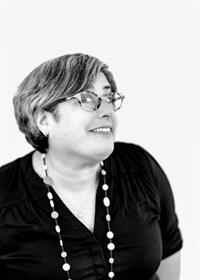Qcast: Kids Matter - Creating Safe Space for Young Consumers' Voices to be Heard
Total Credits: 1 including 1 Advance Credits
- Average Rating:
- 3
- Categories:
- Moderating/Facilitation | Professionalism | Project Management
- Speaker(s):
- Pam Goldfarb Liss | Dr. Barbie Clarke
- Duration:
- 1 Hour
- Format:
- Audio and Video
- Original Program Date:
- May 06, 2021
Overview
Children today influence a variety of purchase decisions, making them an important audience for market research across the globe. COVID-19 has made their online activities even more relevant to research, but in our social media savvy world, kids are more vulnerable than ever before. What kinds of protocols and standards do researchers need to manage to ensure that children are able to participate safely?
In this webinar, we will discuss safety standards, expectations and opportunities for research with children around the world. We’ll look at what researchers need to know about protecting young participants throughout the recruiting and research process, including a child’s right to give “informed consent” before taking part in research, and their right to withdraw if they don’t feel comfortable participating. We’ll also discuss considerations when working with children from different cultures and the importance of designing research that respects children’s abilities and developmental stages.
QRCA is pleased to collaborate with the Market Research Society (MRS) on this Qcast.
Speaker


Dr. Barbie Clarke Related Seminars and Products
Dr. Barbie Clarke is the managing director of Family Kids and Youth, a U.K.-based market research consultancy specializing in children and young people. Prior to founding Family Kids and Youth in 2002, Barbie served as Director of Family Research at GfK NOP.
A global advocate for child safety, Barbie is a trained child and adolescent psychotherapist and is a registered member of the British Association of Counselling and Psychotherapy (BACP). She earned her PhD in child and adolescent psychosocial development from the University of Cambridge, and she has taught child development and research methodology at the School’s Faculty of Education, where she supervised post-graduate students. She is co-author of the book The Supportive School: Wellbeing and the Young Adolescent.
Barbie is a Fellow of the Market Research Society (MRS) and sits on the Standards Committee of the MRS. She has regularly appeared on TV and radio commenting on research with children and young people.
